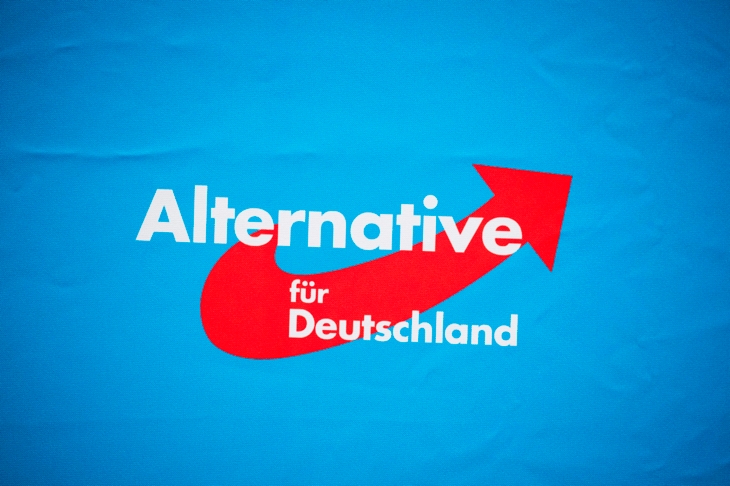The German public have, as predicted, kept ahold of nurse. But it is the breakthrough of the AfD into the German Parliament that is causing headlines around the world. Of course the four-year old party’s electoral success is also unsurprising. In elections last September the AfD were elected to representative roles in most of the country’s regional assemblies and beat Merkel’s party into third place in her own constituency.
Nevertheless, yesterday’s electoral breakthrough is stunning and the success of this four-year-old party is among other things now causing a predictable rash of 1930s analogies. In a media landscape where very few papers can afford any foreign coverage at all, and a social media landscape which blows around slightly sourced stories with a further splash of personal self-aggrandisement, understanding a phenomenon like the AfD is harder than it should be.
Many Europeans find themselves caught. Firstly by the fact that the mainstream political class has done something mad in recent years. As I recently explained at book-length, it is inevitable that things will get complicated when the people in charge of Europe make decisions as appalling as those Angela Merkel made in 2015. What she occasioned in unilaterally opening the continent’s doors to the world may have been humanitarian and may have had some good intentions. But it was also reckless, short-sighted and will cause severe issues for German society for generations to come. Most of that impact – including the daily reports of crime and sexual assault – never make it further than the German-language press, and often not even there.
What are the public to do when their leaders and media behave like this? One idea is that the public shouldn’t have any choice and should be forced to keep voting for the same old parties anyway. This obviously suits the incumbents, and is best achieved by depicting any and all parties concerned about immigration – including the mass immigration which people across the political spectrum now say they acknowledge to have been an unrepeatable disaster – as Nazis, fascists and racists. The incumbent politicians and parties acknowledge they have made mistakes, promise not to repeat those mistakes but insist that anyone wishing to make them pay any political price must recognise that they are voting for a Fourth Reich. It’s a clever, cynical ploy, employed by politicians and much of the media across Germany even more than the UK.
Their problem is that at some point the public recognise the ploy. And in particular a moment arrives when the spell-words used by the political mainstream begin to fail. Already terms like ‘racist’, ‘Nazi’, ‘far-right’ have been worn down almost everywhere in Europe. The few people who continue to claim that the public’s concerns are all racist are themselves the ones who now look ridiculous. All they do is ensure that the public care less and less about the words they are called. This has a follow-on problem which is especially worth pondering in Germany.
For if the media and political class call everybody a racist and a Nazi for years, and the public can see that these people often called racists and Nazis (Ukip in Britain, for instance) are – whatever else you might think of them – clearly not Nazis or racists, then you set up another problem down the road. Anyone who has heard a hundred different people being called Nazis who they knew not to be Nazis is unlikely to have their anti-Nazi antennae intact when the accusation is made for the hundred and first time. This is among the problems that Merkel and co have now set up. The AfD’s platform and pronouncements require close and unbiased attention. This should include having their words and actions reported accurately.
To her credit, Merkel – the great absorber of political difference – has said that she will work to bring back the people who voted AfD this weekend. This suggests that she might – just might – take what is essentially the second broad option for Europe’s political mainstream. That is to stop pretending that anything from a quarter to three-quarters of the general public across Europe are Nazi, fascist, racists who need to be reprogrammed, fought, denounced or ignored. Instead it is to recognise that the concerns of the public are concerns that should be addressed and remedied by the political mainstream. Which isn’t, surely, such a radical idea.
We’ll see which path Germany now goes down. More than Germany’s politics will depend on it.







Comments